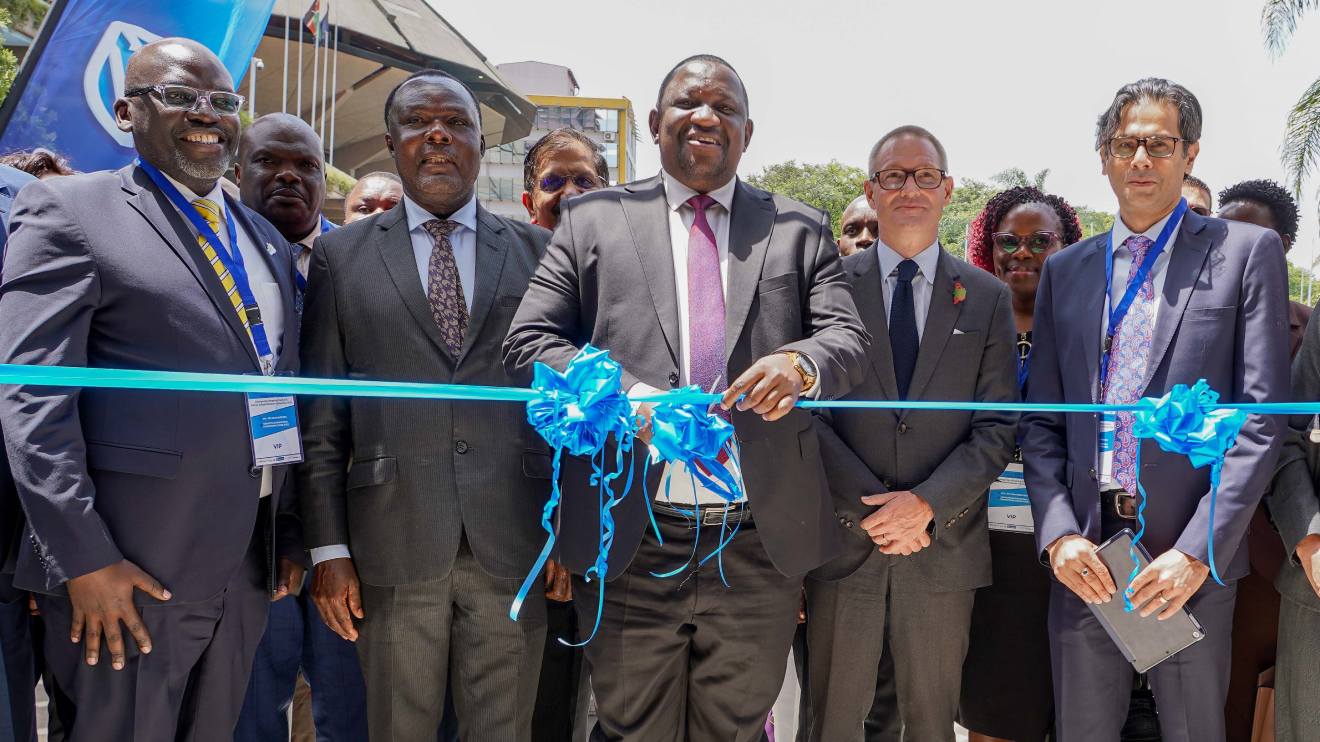At Nairobi's iconic Kenyatta International Conference Centre (KICC), Kenya’s largest showcase of locally crafted goods, the Changamka Kenya Shopping Festival, kicked off on Tuesday, drawing thousands of eager shoppers and industry leaders alike.
Salim Mvurya Mgala, the Investments, Trade, and Industry CS launched the event with an earnest call to action, inviting Kenyans to champion local products as a pathway to national growth and job creation.
Mvurya described the festival as more than just an exhibition, calling it a "showcase of Kenya itself" and a statement of belief in the power of home-grown talent and industry.
“Today is a very important day; we are here to showcase Kenya and its locally manufactured products. The festival underscores the strategic importance of our local manufacturing sector in propelling Kenya's economic growth and resilience,” Mvurya remarked, with a vision to see Kenyan-made goods reach international standards and markets.
This year’s Changamka Festival, he emphasised, symbolises how local innovation and quality can compete on a global scale, ultimately strengthening the country’s economic base.
Read More
Now in its seventh edition, the festival spans four days and highlights over 200 local exhibitors, including more than 100 small and medium-sized businesses.
Organised by the Kenya Association of Manufacturers (KAM) in collaboration with the Ministry of Investments, Trade, and Industry, the event aligns with Kenya’s ‘Buy Kenya Build Kenya’ initiative—a national strategy to promote local goods and reduce reliance on imports.
This year’s festival is also the curtain-raiser to the Kenya Industrialization Conference, which starts on November 6th, spotlighting how green innovation and artificial intelligence (AI) can accelerate the continent’s industrial future under the theme: "Leveraging Artificial Intelligence (AI) and Green Industrialization to Accelerate Africa’s Structural Transformation."
The British High Commissioner to Kenya, Neil Wigan, voiced strong support for the country’s local industries, reaffirming the UK’s partnership with Kenya to foster sustainable growth.
He highlighted several UK initiatives that empower Kenyan manufacturers, including Manufacturing Africa, which drives job creation by adding value to Kenyan exports.
“The UK and Kenya, as part of our long-term partnership, are working together to provide long-term investment solutions to drive economic growth and create jobs,” Wigan explained, mentioning how the Africa Green Industrialisation Initiative is set to boost job opportunities and ensure climate-resilient growth for Kenya.
For KAM, this festival embodies a vision it has championed for years—disproving the misconception that local products can’t match imports in quality or price.
KAM Vice Chair Hitesh Mediratta spoke passionately about how events like Changamka enhance local market access, celebrating Kenya’s economic strength.
“At the heart of KAM’s mission lies the Buy Kenya, Build Kenya initiative, which reinforces the critical role of local consumption in boosting our economy,” he stated.
Mediratta pointed to the many success stories on display at the festival, stressing that continued growth depends on partnerships across the private and public sectors to ensure that supportive policies drive lasting progress.
The excitement at the festival reflects a growing belief in Kenyan-made goods, with over 100 small and medium-sized enterprises showcasing products from technology and crafts to fashion and foods—all held to international standards.
KAM Acting CEO Tobias Alando echoed this sentiment, describing the festival as a vital platform for elevating Kenyan manufacturing to new heights.
“The 7th Edition of the Changamka Festival is a pivotal platform for positioning Kenya’s manufacturing sector on the global stage,” Alando noted.
He praised the event’s role in demonstrating that Kenyan goods are world-class, reinforcing the nation’s reputation as a rising hub for high-quality manufacturing.
Beyond the vibrant marketplace atmosphere, the festival is anchored by partnerships with key organisations, including TradeMark Africa, Stanbic Bank, Kenya Breweries Limited, AfreximBank, and the United Nations Industrial Development Organization.
These partnerships aim to increase the visibility of Kenyan products, from local markets to regional and global stages.
As the festival continues, organisers are hopeful that Kenyans will embrace the call to “Buy Kenya, Build Kenya” by investing in the quality and innovation emerging from within their borders.
The Changamka Festival stands not only as a platform for products but as a bold statement for a new economic era, rooted in the pride and potential of Kenyan enterprise.












